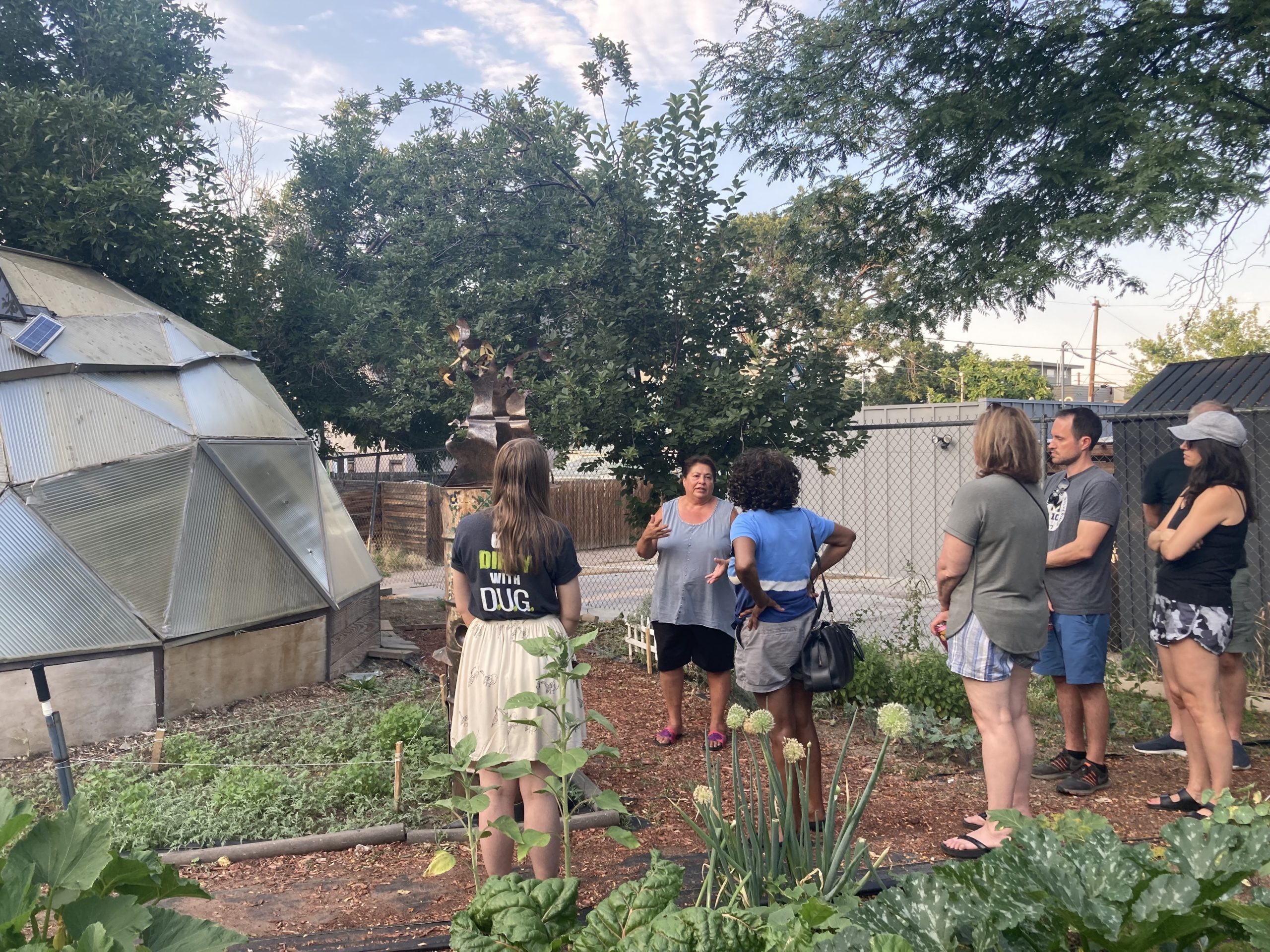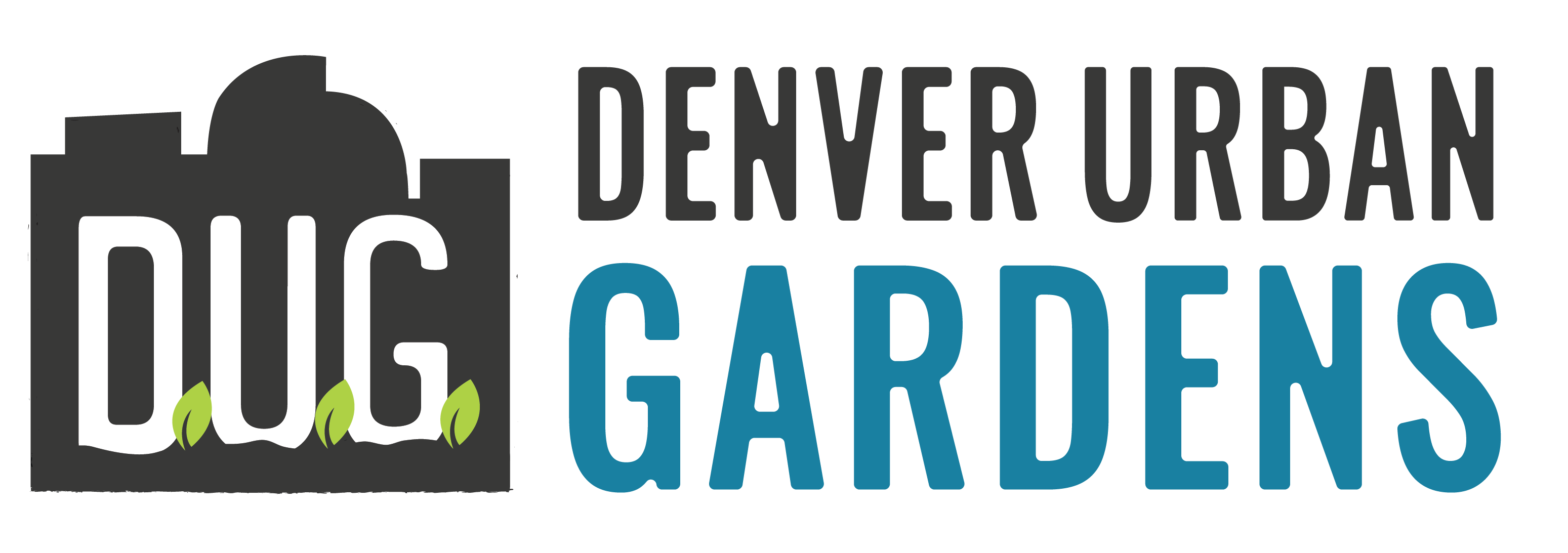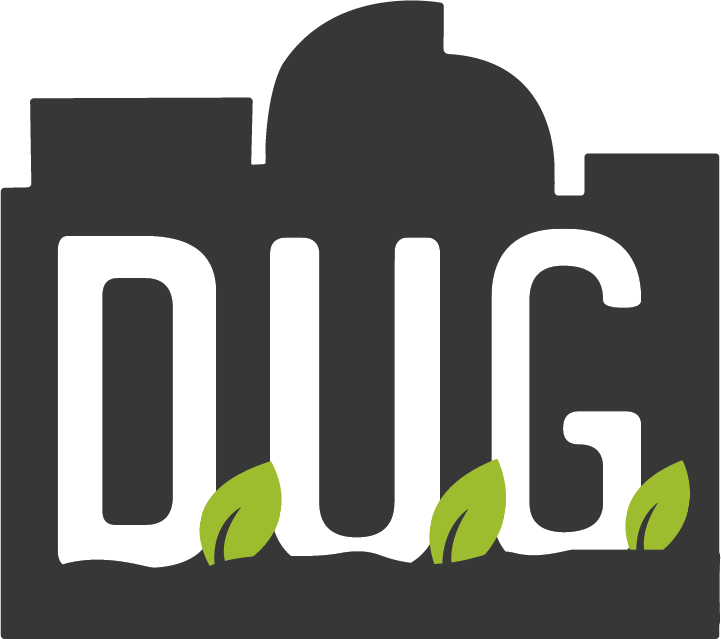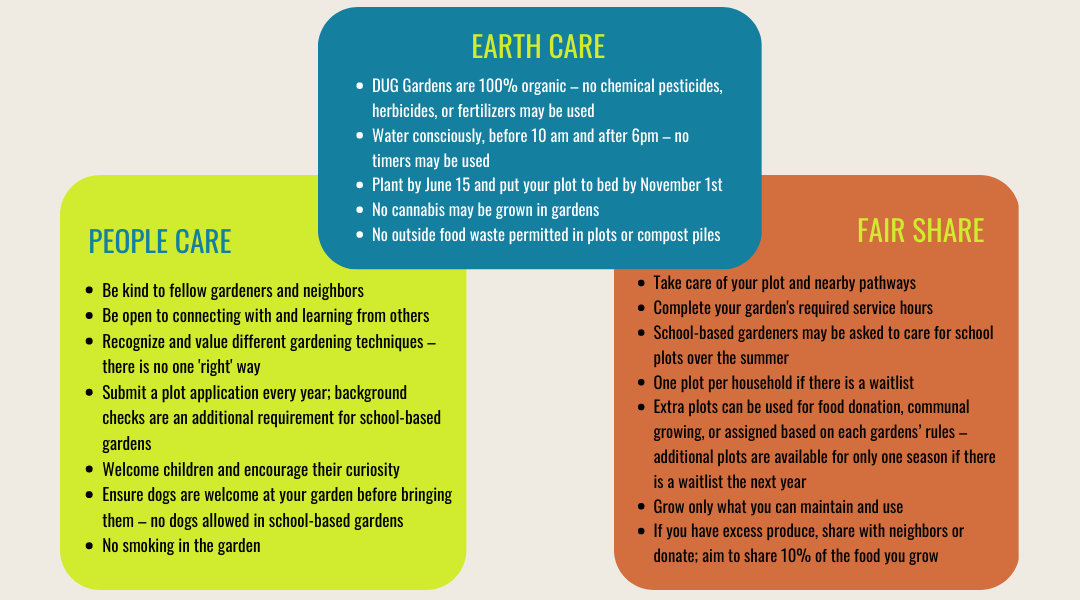DUG gardens are as unique and diverse as the people who garden in them
There are 200 active community and school-based gardens in the DUG network.
With the exception of a small number of gardens that serve specific communities, DUG community gardens are open to the public and managed by more than 300 volunteer Garden Leaders and stewarded by over 17,00o gardeners. The diversity of our gardens is reflected in their sizes, organizational structures, community cultures, and internal community policies.
DUG gardens are comprised of several separate garden plots that are each cared for by individuals or families.
Community gardeners care for and harvest from their own plots, or growing spaces. Plot sizes vary from garden to garden but most are 10 feet by 15 feet, or around 150 square feet. Shared spaces like pathways, perennial herb and flower beds, sheds, and gathering spaces are cared for by all community members. Many gardens also have spaces dedicated to growing extra produce for community redistribution in partnership with local food banks, community organizations, and mutual aid groups.
How To Join a DUG Community Garden
1. Use the map to explore DUG gardens near you with potential plot availability.
Gardens that have potential plot availability for the season are shown in green. Click on the garden icon to find more info on the garden, including the contact email for the Garden Leader.
If a garden is marked blue and is already full for the season, email the Garden Leader to ask to be added to a waitlist.
2. Email the Garden Leader to confirm plot availability and to request a plot registration.
Each spring, Garden Leaders first check with gardeners from last year and contact their current waitlists (if applicable) to confirm plot availability before accepting new registrations or marking their garden as full.
For gardens with plot availability, plots are accessed on a first-come, first-serve basis.
Our volunteer Garden Leadership teams begin reviewing new plot registration annually in early Spring. Please be patient if you do not hear back about your registration form quickly.
Allow at least 10 days for a response before emailing the Garden Leader again.
Each community garden charges their own annual plot fee which is determined by a garden’s community garden leadership.
The average plot fee is $40 a year and goes towards collective garden resources such as water fees, compost, garden tools, maintenance support, and garden events.
Additionally, DUG charges each gardener an annual $25 in DUG Dues. This fee supports our behind-the-scenes work (and helps us keep our lights on). We encourage our gardeners who have surplus financial resources to ‘pay-it-forward’ by donating additional money for plot fees and dues to those with fewer resources.
If you cannot afford the full plot fee or DUG dues, please let your Garden Leader know when requesting a registration. No one is turned away from joining a garden due to an inability to pay.
Potential gardeners who wish to garden at a school-based community garden must pass a background check as part of the registration process.
School districts consider community gardeners to be school volunteers; therefore, all gardeners who wish to garden at a school-based community garden (including family members of students) fall under the classification of a volunteer, and a background check is required.
While a photo ID is required, it does not need to be issued by the US Government. For example, a foreign photo ID such as a passport, license, student, or Consulate ID is also okay. A social security number is also not required to complete the process. The information provided by a volunteer on the background check form is completely confidential and is never shared with other government agencies. Immigration status is not checked.
Potential school-based gardeners must complete a background check (distributed by Garden Leaders) before completing their plot registrations.

How DUG Supports our Community Gardens:
- Cultivate community-driven garden leadership, including volunteer Gardener Leader recruitment and placement
- Provide garden maintenance support
- Provide fiscal management of garden accounts (as requested)
- Provide liability insurance coverage for gardens and serve as liaison between gardens and city officials, agencies, and water providers
- Establish working relations with garden property owner agencies and negotiate and maintain garden site use agreements
- Coordinate volunteer groups and supervise large maintenance and improvement projects
- Mediate inter-community gardener conflicts as requested
- Offer EPA soil testing to determine soil characteristics and potential contaminants
- Organize community networking and learning events for gardeners and garden leaders




